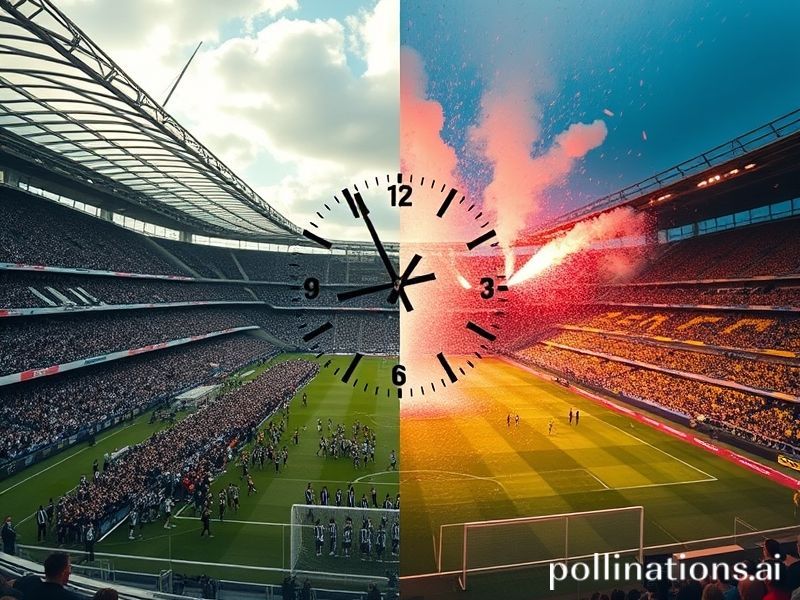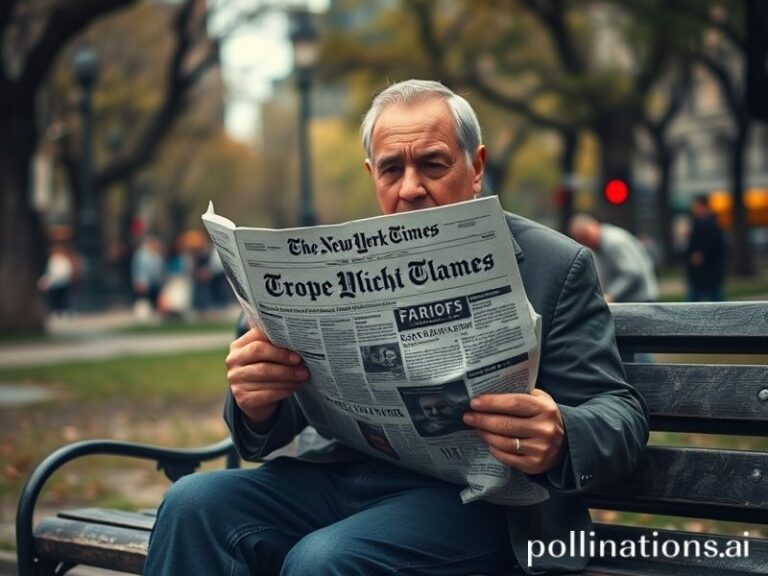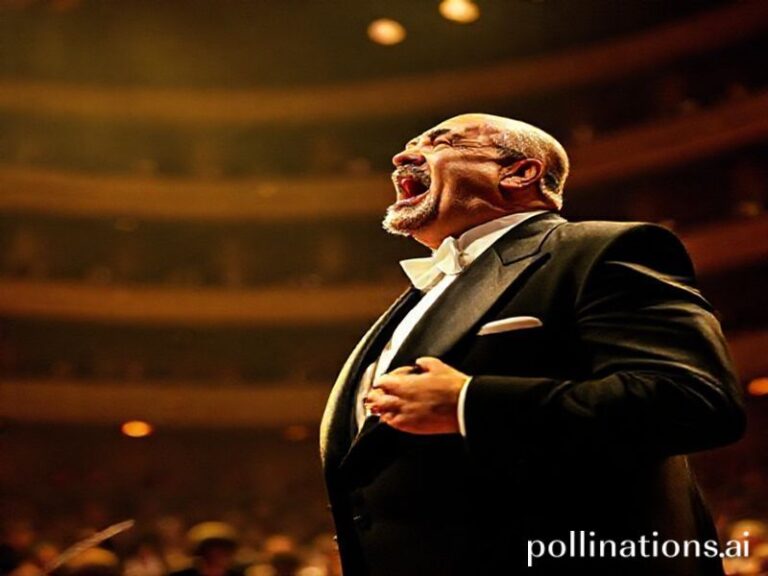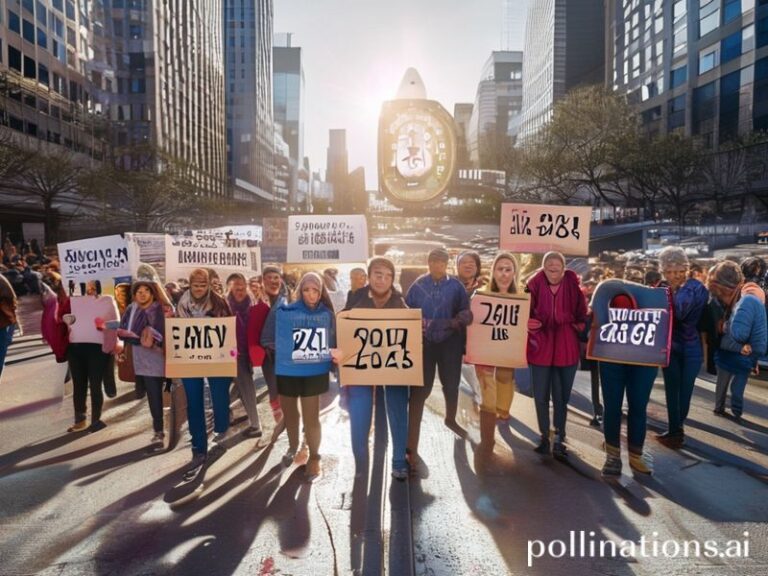From Zidane to Crypto: The Juventus-Dortmund Timeline as a Dark Comedy of Global Capital
Juventus vs Borussia Dortmund: A Timeline of Two Empires Pretending Everything Is Fine
By “Il Conte” Malatesta, Senior Continental Misanthrope
1993 – The Cold War Is Over, So Let’s Fight Over Midfield
The first UEFA Cup final between these two continental super-brands lands in the same year Bill Clinton is learning the saxophone and the world is pretending Bosnia is merely “restive.” Juventus, sleek in pinstripes that scream “Italian fiscal creativity,” edge Dortmund 6–1 on aggregate. The Germans console themselves by noting that at least their balance sheets are real.
1995 – The Bosman Bomb
Jean-Marc Bosman ruins every chairman’s breakfast. Juve’s Michel Platini-era stash of foreign stars suddenly costs hard cash; Dortmund’s East-German scouting network now has to pay bus fare. The timeline tilts: Europe’s borders open, and suddenly a Malian striker with a fake Portuguese passport is everyone’s problem.
1997 – Peak Schadenfreude
Dortmund, managed by the only man who can make tactical genius look like a tax audit (Ottmar Hitzfeld), stun Juve 3–1 in Munich to lift the Champions League. Zidane, Del Piero, and a young Antonio Conte watch in horror as Lars Ricken lobs Angelo Peruzzi from somewhere near the beer garden. The global takeaway: Germans are allowed to have fun once every decade—use it wisely.
2001 – Dot-Com Bubble Meets Transfer Bubble
Juve sell Zidane to Real Madrid for 77 billion lire (roughly the GDP of a medium asteroid). Dortmund, meanwhile, list on the stock exchange and discover that share prices, unlike Dietmar Hamann, cannot tackle. Both clubs learn that infinite growth is a myth, unless you’re FIFA.
2006 – Calciopoli and the Art of Selective Amnesia
Juventus get relegated for—how to put this delicately—curating their own reality TV show. Dortmund politely pretend not to notice, mainly because they’re busy selling their stadium name to a bank that no longer exists. Global fans learn that “corruption” is just Italian for “innovation,” while “financial fair play” is German for “we filed the paperwork.”
2014 – The Europa League Reunion
Drawn together in the last 16, the tie finishes 5–1 on aggregate for Juve. Dortmund fans console themselves with €4 standing-room tickets and the knowledge that their club is still majority member-owned—like a co-op grocery, but with worse lighting. Juve, meanwhile, are majority-owned by the Agnelli family, who also own Fiat, which explains the acceleration on the counter-attack.
2015 – Berlin, Capital of Irony
Juve reach the Champions League final in Berlin—Dortmund’s temporary home during renovations. Allegri’s side lose to Barcelona, proving that even with Pirlo’s beard and Buffon’s existential calm, MSN (Messi-Suárez-Neymar) are the actual Holy Trinity. The world takes note: if you want miracles, buy South American.
2021 – Ronaldo Leaves, Haaland Lingers
Cristiano Ronaldo exits Turin the same summer Erling Haaland’s release clause becomes the planet’s most-googled PDF. Juve pivot to Vlahović, a Serbian who looks like he was designed by Netflix. Dortmund prepare to sell Haaland to Manchester City, because nothing says “German prudence” like making Pep Guardiola even richer.
2024 – The Next Chapter, Sponsored by a Crypto Exchange Nobody Understands
Drawn together in the Champions League group stage again, both clubs arrive carrying the same luggage: aging legends, suspicious accountants, and fanbases who’ve read too much Reddit. The matches end 2–1, 1–1. Global audiences watch on streaming services that crash precisely when VAR takes more than 45 seconds, reminding us that the future is buffering.
Epilogue: Everything Changes, Nothing Moves
From 1993’s analog highlights to 2024’s glitchy 4K, Juventus vs Borussia Dortmund has become a biannual seminar on late-capitalist sport: a rolling masterclass in how to monetize nostalgia while pleading poverty. Somewhere between the Stasi files and the Cayman accounts, football remains the excuse. The timeline keeps scrolling, the empire’s new clothes are still sponsored, and the only certainty is that next year we’ll do it all again—only the subscription fee will be higher.
Sleep well, citizen. The derby of the debtors is eternal.







